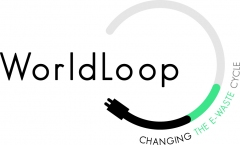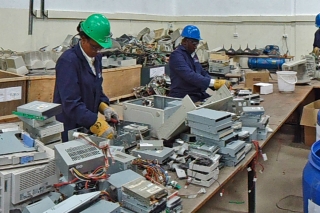In the end, every computer ends up as e-waste; also those from Close the Gap (CTG). In order to avoid having CTG’s computers dumped in landfills or recycled in an environmental unacceptable manner when they reach end of life, CTG took the initiative to pay specific attention to the e-waste problem in developing countries. In 2009, with co-financing of the BTC-CTB (Belgian Technical Cooperation) a study was carried out for CTG on an integrated sustainable e-waste management solution for the East-African Community (EAC).With the support of Recupel this led to the creation of WorldLoop (previous WorldPC) in 2011.
CTG is an organization able to combine “words with deeds”. This is true also for the e-waste part. As a follow-up of the study of 2009 CTG’s first e-waste recycling facility, the WEEE Centre, was opened in Africa. On 27th September 2011, European Commission Vice-President Mrs Neelie Kroes led a high-level delegation of EU representatives (including three members of the European Parliament), corporate supporters and partners of CTG at the inauguration of the plant in Nairobi. Close the Gap already finances a network of regional manual recycling centres for electronic waste in the EAC, operated by its local partner Digital Pipeline Africa (DPA) Kenya. The WEEE Centre, in partnership with WorldLoop, now takes e-waste treatment to a much more environment-friendly level.


